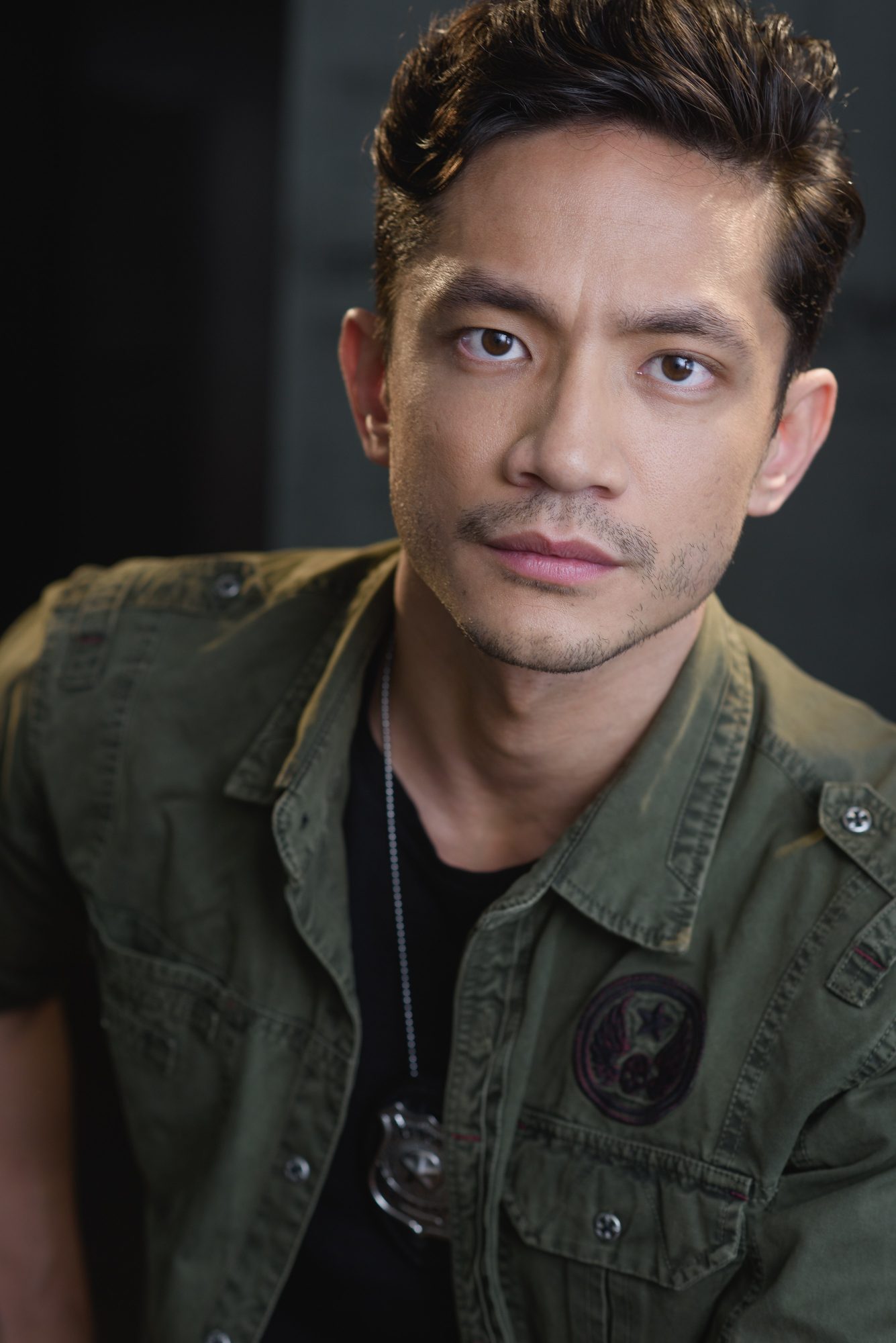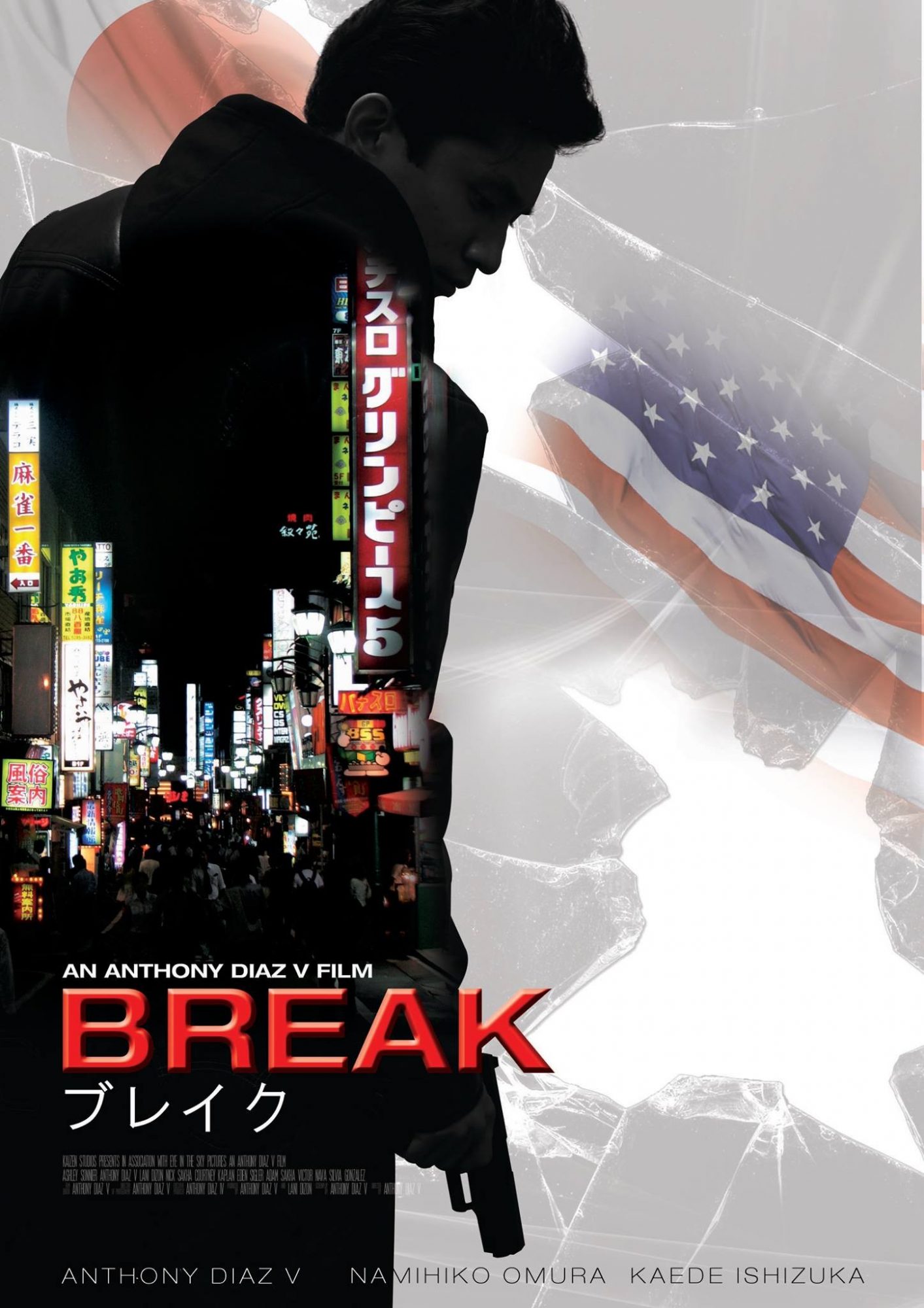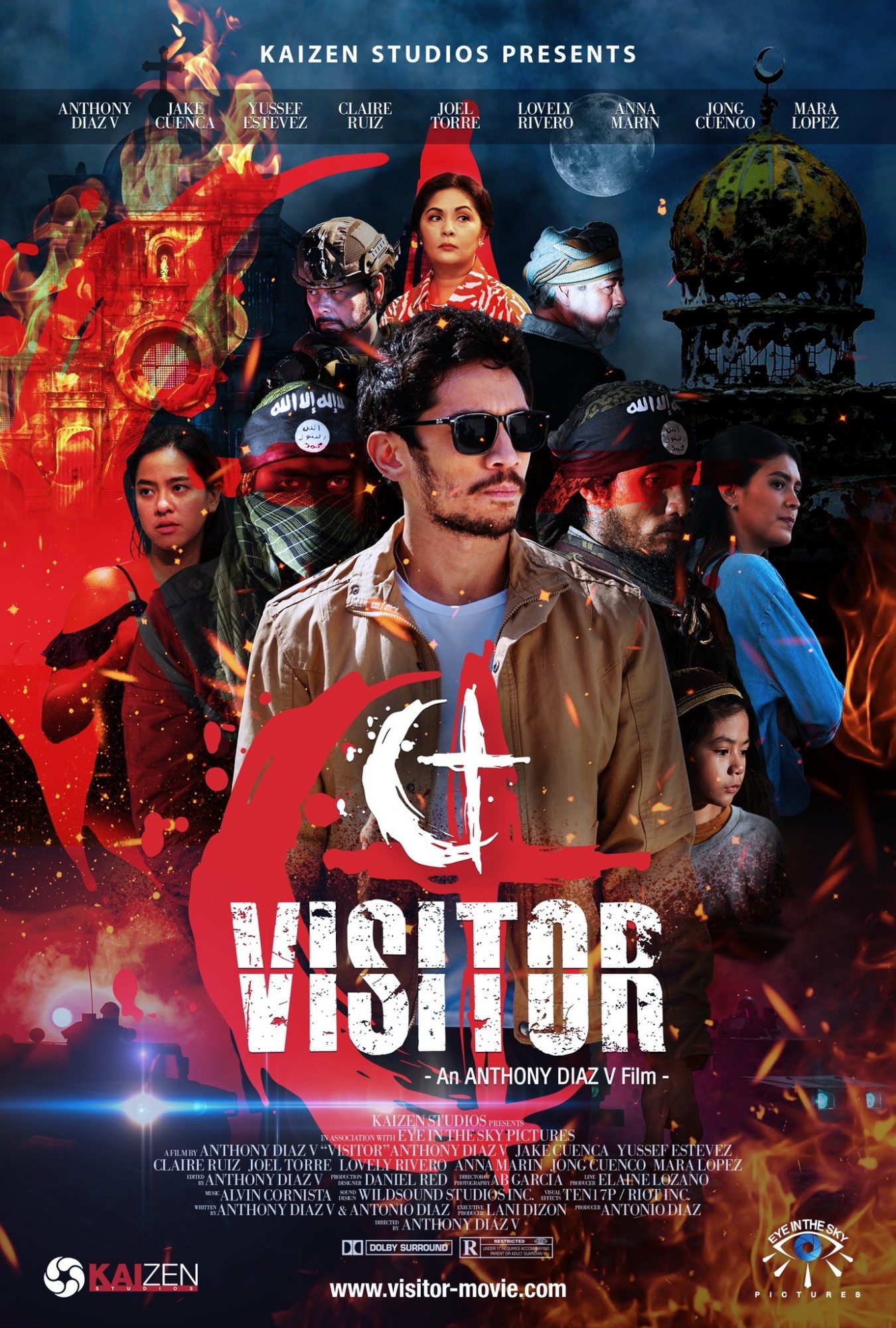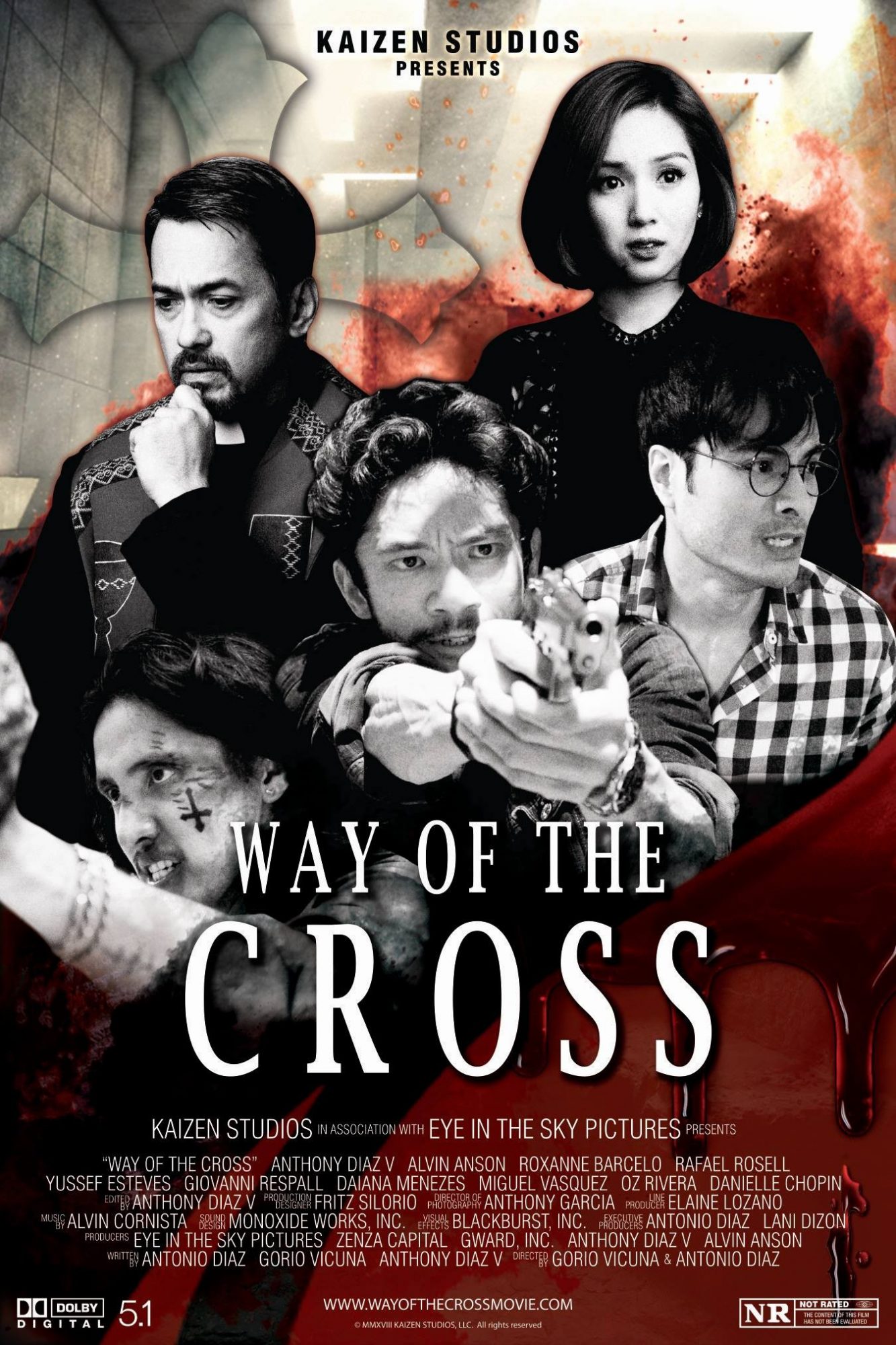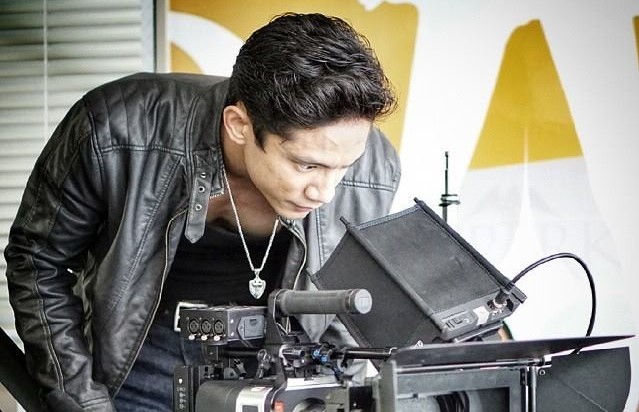

Today we’d like to introduce you to Anthony Diaz.
Hi Anthony, so excited to have you on the platform. So before we get into questions about your work-life, maybe you can bring our readers up to speed on your story and how you got to where you are today?
I was always fascinated with movies and visual media at a very young age. I was able to transport myself to another world, learn about a different culture, and even experience a different way of life all from the comfort of my couch. That’s what ultimately drew me towards a career in storytelling and filmmaking because It allowed me to take experiences of my life and shape them into a narrative that I can share with others. It was my way of communicating. So after acting in the school plays, using cheap 2MP cameras to film short films with my family and friends, my Father bought me my first low-budget tape recording camera for my 15th birthday, and ever since then, I have been creating my own films.
I write, direct, act, produce and edit my own films and I learned at a young age how to manage and wear all those hats in the different stages of the filmmaking process. It allowed me to see the scale of what it takes to create a story through film, and it was my training of sorts to when I started working with a full-fledged crew, I was able to convey my vision more clearly because I was going through my story multiple times through the various stages of development.
Growing up my family would have movie nights and I would always ask my father questions about character motivations, style, theme, etc. on films I was too young to understand, but nonetheless, the seed of creative curiosity was planted in me ever since. I was amazed at how images on a screen affected people just by watching it and the response you get after people experience what you create is a rush that I was addicted to.
So how I got to where I am now where my filmmaking operates out of Asia, Shibuya Tokyo specifically, was a challenge of wanting to make a film in Japan. I have always visited Japan at least once a year since I was eleven years old thanks to my Father’s business operating out of Japan since the early nineties. I immediately fell in love with the culture and lifestyle there and I always couldn’t wait to go back and discover more about the country. Fast-forward to right after graduating college at twenty years old, I asked my Father if I could make a film in Japan and put this film degree to use right away. So I showed him a script, my plan on shooting the film for as little money as possible, and he backed the film and now it’s on various streaming platforms as well as Amazon Prime Video. You can also check out the films website www.thebreakmovie.com where you can find the trailer, BTS photos and videos and articles about the project. Websites for my other films are:
https://wayofthecrossmovie.com
https://visitor-movie.com
Now I am in post-production for my third feature film while scripting my fourth. I am constantly striving to stay in the creative process and take what I learn from each of my films into the next.
Can you talk to us a bit about the challenges and lessons you’ve learned along the way. Looking back would you say it’s been easy or smooth in retrospect?
I am so fortunate and blessed to have a great support structure where I am able to get constructive and tangible feedback and know that the people I go to always have my best interest at heart. I have so many projects in various stages of development that it can be overwhelming because there is only so much time in a day, but I exercise patience because when I step back and let each project grow and evolve naturally, the timing becomes perfect when I prioritize it. In the beginning, it wasn’t easy because I would never have more than three crew members on set helping me, including myself, and I was still literally touching every part of production on set or with the help of an actor, family or friend.
My first film, BREAK, was a huge learning experience to say the least because on top of filming in a foreign country that I had no experience in along with the myriad of other factors filmmakers go through when creating their first feature, I was working with Japanese actors who had no experience speaking and acting in English. I had to train and practice with them, along with a translator and coach that had experience in America, on how to say their lines in English with a certain intonation and emotion. They were also volunteering their time for the film, so I had to work around their schedules. There would be times during filming when a scene would take a month to complete because of the scheduling and trying to maintain the continuity with the actors, like their hair, was difficult to navigate.
There are a lot more stories and some are described in the BTS interviews found on the film’s website, but needless to say, my first film was a great learning tool and experience that helped me navigate my career going forward.
Thanks for sharing that. So, maybe next you can tell us a bit more about your work?
As mentioned I write, direct, act, produce and edit my own films and I learned at a young age how to manage and wear all those hats in the different stages of the filmmaking process. That way whenever I do work with a big crew and I can just focus on directing and/or acting, I am able to communicate clearly with each department and they help bring whatever is inside my head to life. Even when I am directing and speaking to the actors and crew, I am able to clearly paint a picture inside their heads where they naturally see the finished movie already. I can say that is what I am most proud of. Being strained budget-wise on my first film really forced me to be creative and learn how to solve my problems creatively.
I also love working with actors since I am an actor myself and I got the bug from performing in school plays. I can really connect with my actors and get them into that head space for them to perform whatever it is the story is demanding.
Risk taking is a topic that people have widely differing views on – we’d love to hear your thoughts.
When we hear the word “risk” there is this negative connotation that challenges our worldview of what we consider safe or normal, but in reality, they can be used as guiding lights that can lead to opportunity. Of course, showcasing your work to the public always comes with the risk of ridicule and criticism, and anybody in the field of arts will tell you that especially at the beginning, they took criticism very personally, even if they tried not to.
I am an introvert by nature which is ironic for someone who works and talks with people on a daily basis. When I started to take filmmaking seriously it was hard for me to convey my vision because the risk of being rejected was always in the back of my mind. My movies were an extension of myself and I was afraid of putting myself out there and the public not liking what they see. But my Father who is also my mentor has always instilled this life lesson in me since I was very young, “How do you expect to get everything you want in life if you are not willing to give up everything that you have?” He also said, “Visionaries do not look at the risk in an opportunity, they look at the opportunity in the risk.” So now I look at risks in a completely different light. They are a catalyst that carves and shapes me to become a better filmmaker and storyteller and ultimately the person I aspire to be.
I always remind myself that everything I ever want to accomplish in my life lies on the other side of fear. So now, when a risk presents itself, I allow myself to feel that fear and use it as a guide to know that I am on the right track.
Contact Info:
- Website: https://visitor-movie.com
- Instagram: @anthonydiazv
- Facebook: Facebook.com/kaizenstudios
- Other: https://wayofthecrossmovie.com/en/
